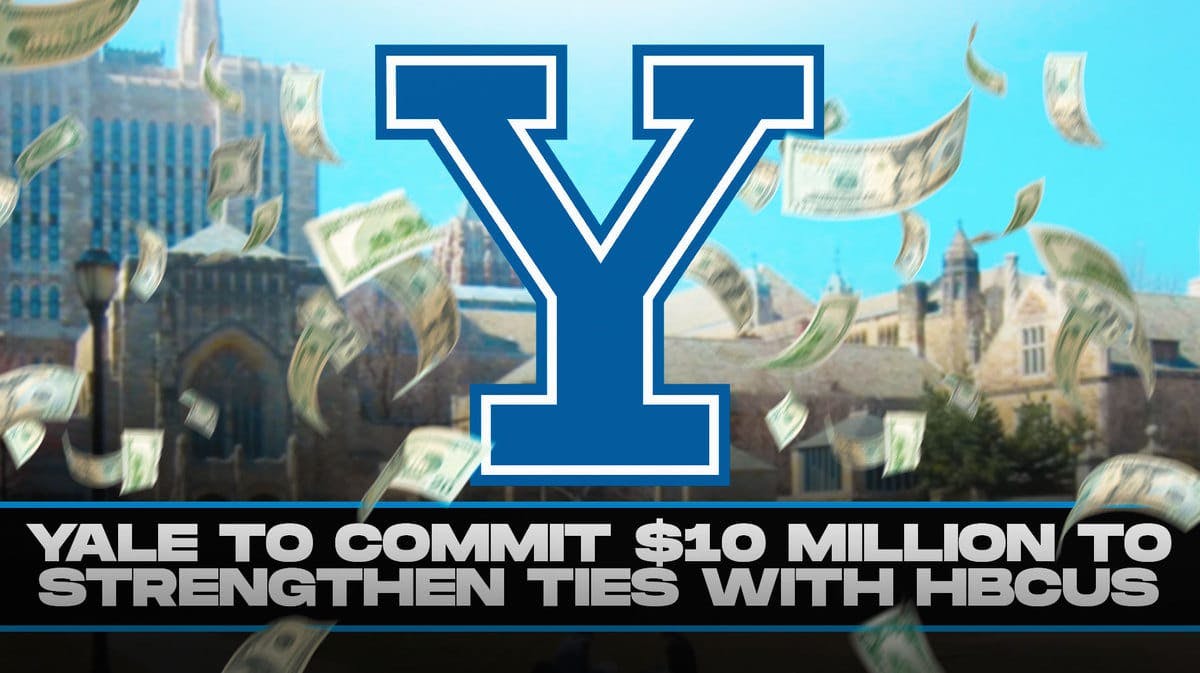In a recent announcement, Yale University has committed to donating $10 million to an initiative that strengthens the university’s relationship with HBCUs. Yale will commit $2 million annually to establish the Alliance for Scholarship, Collaboration, Engagement, Networking, and Development, or ASCEND over the next five years. This initiative will encourage research partnerships between faculty at both Yale and HBCUs while seeking to expand the presence of HBCU graduates in existing programs at Yale.
This announcement comes two weeks after Yale University President Peter Salovey and Senior Trustee of the Yale Corporation Joshua Bekenstein ’80 issued a formal apology on behalf of the university due to its ties to slavery. The university coincidentally released findings from the Yale and Slavery Research Project and announced the plan to develop research fellowships with HBCUs, while noting that unspecified “significant” new investments would be announced in the upcoming weeks.
This recent announcement also comes after the NAACP Connecticut State Conference voiced their criticism against the university’s apology made back in February. Connecticut NAACP President Scot X. Esdaile criticized Yale’s ownership over the David Blight book, Yale and Slavery: History. The book was published along with Yale’s apology announcement, Esdaile went as far as to criticize the book for not including information regarding the university’s ties to eugenics.
“This is a whitewashed version of the story, and I think that Black historians, Black civil rights activists, Black leaders, and Black educators need to come together and tell the real story,” Esdaile told the News in an interview last Tuesday. “I’m not trying to disrespect, but I think that the constructive criticism should be there … by putting in $10 million for students to come back to Yale, how does that help our community?”
The ASCEND initiative is set to support faculty collaboration grants and teaching fellowships for both Yale and HBCU faculty to create “collaborative teaching arrangements or “joint course experiences.” The initiative will also offer sponsorship for faculty research fellowships for HBCU faculty who are interested in research opportunities at Yale.
In addition to the ASCEND initiative, Yale is seeking to further develop its Summer Undergraduate Research Fellowship program, an eight-week program intended for HBCU undergraduate students to learn more about pursuing a Doctoral degree. Yale also intends to increase the number of HBCU graduates participating in post-baccalaureate programs.
President Esdaile was also asked about Yale’s recent pledge announcement; he references the 1831 failed attempt to establish what would have been the first Black college in America by New Haveners.
“We were supposed to have our own HBCU that benefited Black people … making Yale a more powerful institution doesn’t help our community,” Esdaile said. “This is a step in the right direction, but I think that [Yale] has so much more that it needs to do.”
Esdaile also stated that by maintaining copyright ownership over Blight’s book, Yale is “executing a power dynamic that benefits the institution at the expense of marginalized communities.”
Blight responded in an email to Yale News, stating that he told President Esdaile the initial plan was to continue the book until the 1930s, “therefore covering the eugenics story fully” but a lead researcher on the project became ill thus leaving them with fierce deadlines to meet. He also stated that, if written, a second volume might “indeed” cover eugenics.
Yale University is currently in partnership with five HBCUs: Clafin University, Hampton University, Morgan State University, North Carolina A&T University, And Tuskegee University.
